第33章
"At last Nala came up and told us that food was made ready, and thankful enough we were to get it, I can tell you. After we had eaten we held a consultation. Quite a thousand of Wambe's soldiers were put /hors de combat/, but at least two thousand remained hidden in the bush and rocks, and these men, together with those in the outlying kraals, were a source of possible danger. The question arose, therefore, what was to be done--were they to be followed or left alone? I waited till everybody had spoken, some giving one opinion and some another, and then being appealed to I gave mine. It was to the effect that Nala should take a leaf out of the great Zulu T'Chaka's book, and incorporate the tribe, not destroy it. We had a good many women among the prisoners. Let them, I suggested, be sent to the hiding-places of the soldiers and make an offer. If the men would come and lay down their arms and declare allegiance to Nala, they and their town and cattle should be spared. Wambe's cattle alone would be seized as the prize of war. Moreover, Wambe having left no children, his wife Maiwa should be declared chieftainess of the tribe, under Nala. If they did not accept this offer by the morning of the second day it should be taken as a declaration that they wished to continue the war.
Their town should be burned, their cattle, which our men were already collecting and driving in in great numbers, would be taken, and they should be hunted down.
"This advice was at once declared to be wise, and acted on. The women were despatched, and I saw from their faces that they never expected to get such terms, and did not think that their mission would be in vain. Nevertheless, we spent that afternoon in preparations against possible surprise, and also in collecting all the wounded of both parties into a hospital, which we extemporized out of some huts, and there attending to them as best we could.
"That evening Every had the first pipe of tobacco that he had tasted for six years. Poor fellow, he nearly cried with joy over it. The night passed without any sign of attack, and on the following morning we began to see the effect of our message, for women, children, and a few men came in in little knots, and took possession of their huts. It was of course rather difficult to prevent our men from looting, and generally going on as natives, and for the matter of that white men too, are in the habit of doing after a victory. But one man who after warning was caught maltreating a woman was brought out and killed by Nala's order, and though there was a little grumbling, that put a stop to further trouble.
"On the second morning the head men and numbers of their followers came in in groups, and about midday a deputation of the former presented themselves before us without their weapons. They were conquered, they said, and Wambe was dead, so they came to hear the words of the great lion who had eaten them up, and of the crafty white man, the jackal, who had dug a hole for them to fall in, and of Maiwa, Lady of War, who had led the charge and turned the fate of the battle.
"So we let them hear the words, and when we had done an old man rose and said, that in the name of the people he accepted the yoke that was laid upon their shoulders, and that the more gladly because even the rule of a woman could not be worse than the rule of Wambe. Moreover, they knew Maiwa, the Lady of War, and feared her not, though she was a witch and terrible to see in battle.
"Then Nala asked his daughter if she was willing to become chieftainess of the tribe under him.
"Maiwa, who had been very silent since her revenge was accomplished, answered yes, that she was, and that her rule should be good and gentle to those who were good and gentle to her, but the froward and rebellious she would smite with a rod of iron; which from my knowledge of her character I thought exceedingly probable.
"The head man replied that that was a good saying, and they did not complain at it, and so the meeting ended.